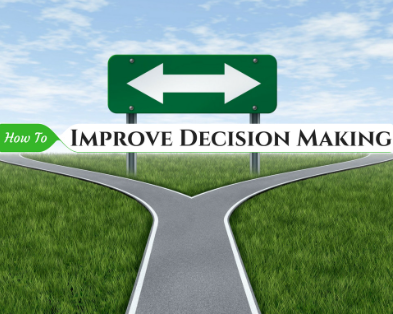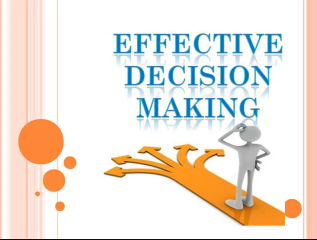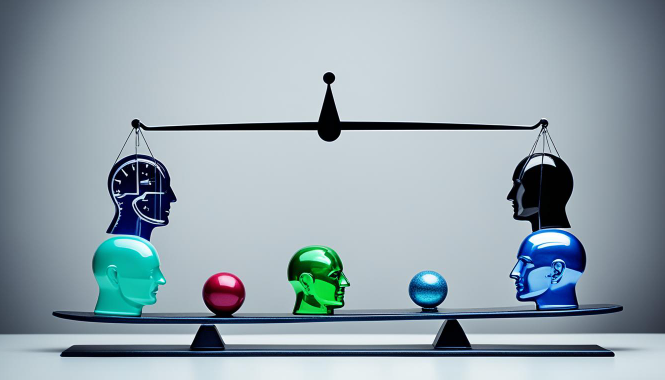Psychology Today shares that the average adult makes 35,000 decisions daily, almost feeling like countless decisions. Some are simple, like what to wear—an almost easy decision. Others are key, affecting our lives. Good decision-making helps us in leadership and life choices and is often seen by hiring managers as a valuable skill tied to strong leadership skills.
Entrepreneur Jim Rohn knew decisions were critical. If we choose poorly, it can lead to bad outcomes. For instance, not wearing Personal Protective Equipment (PPE) at work might cause an accident. This shows why thinking carefully before deciding is so important. Even other leaders often reflect on their choices to avoid decision distress.
In business, the choices we make are very important. Choosing a cheaper supplier without checking their reliability can be risky. It might save money at first but could cause big financial problems later on. It’s crucial to balance speed and thought when making business decisions, especially for a new leader trying to identify risks. Some leaders even fall into analysis paralysis, overthinking simple details.
Making the right decision is more important than just making any decision. President Theodore Roosevelt once highlighted this point. He said that the ability to decide well is key in every situation. Learning how to make decisions well is essential. General Motors Co. faced big losses because of bad choices, showing why businesses must invest in this skill. Strong decision making abilities require steady thinking, emotional sense, and strategic decision analysis.
Today, 87% of employers look for problem-solving in new business hires. To make better decisions, try setting deadlines. Also, break big decisions into smaller parts. Think about the long-term effects of your choices. These steps help in improving decision-making skills and becoming a better leader.
To be better at making decisions, focus on what you want to achieve. Learn from past decisions. Apply this to both your personal and professional life. This way, you make wiser and more strategic choices. Even reflecting on the past year can show your progress. Do this without feeling guilty, and take time to rest so you can approach more decisions with a positive mindset.
Understanding Effective Decision Making
Good decision-making is a complex process. It can be quick or take a long time. It involves gathering facts, looking at choices, and picking a path that fits with goals. Theodore Roosevelt once said it’s better to decide than to not act at all. Every choice, big or small, can have lasting impact.
What is Effective Decision Making?
To make good choices, you need to gather and understand lots of facts. You should also think of new solutions and work well with others to hear different views. Being a good leader means making sure everyone has a say. This helps find the best solution. To get better at decision making, practice and think about your past choices.
Importance in Business and Personal Growth
Having a clear way to make decisions is key at work and in life. For businesses, it means linking choices to their goals is important for doing well. Research shows being good at making choices leads to better financial results. Yet, many find deciding hard, and some take too long trying to get more advice. This shows why getting better at making choices is important for growing personally and for businesses to succeed.
The Impact of Sound Decisions
Making strong choices helps people work better and creates a happier work place. But, if leaders can’t choose, it hurts how well others do their job and their life balance. Sometimes, too much information stops teams from deciding, affecting about 27% of teams. Or, when a group decides, it can be tough because people have different ideas, as said by 35% of companies. Methods like Lean Canvas can help, making sure choices help meet short and long-term goals.
Setting a Time Limit
Time management is key in making good choices. Setting limits on work time boosts how much you get done and how well you do it. Have you heard of Parkinson’s Law? It says work will take up as much time as you give it. Thus, having clear deadlines makes people handle their time better.
The Role of Deadlines in Decision Making
Deadlines are a must for setting goals and getting things done. Elon Musk is a fan of the Time Blocking Method. It means splitting your day into parts for different tasks.
This makes handling big tasks, like budget reports, easier. It helps cut down on putting things off and boosts your chance of reaching your goals.
Balancing Speed and Quality
Deadlines are great for avoiding delays. But it’s also crucial to balance doing things fast with doing them well. The Eat That Frog method, based on Mark Twain’s idea, highlights starting with tough tasks first. This can make decisions simpler.
Alan Lakein’s ABCDE Method helps too. It sorts tasks by importance. This method can make it clearer what needs doing first. The goal is to do well, not perfectly. This leads to getting things done on time and with less stress.
Gathering Information
Gathering enough information is key to making smart choices. It involves checking sources for truth and making sure they’re recent. Mix different views to see the whole picture. This big approach makes decisions stronger.
Sources of Reliable Information
Choosing the right sources is critical for wise decisions. There are many kinds such as primary, secondary, and tertiary. Primary is the direct stuff, secondary is an analysis, and tertiary is a big summary. Make sure these sources are top-notch for good decisions.
The Importance of Data Validity
Data has to be good, no question about it. It must be spot on, reliable, and enough. Use methods like looking, sampling, and writing to get the best info. Data health and trust help build strong decision paths.
Active Listening and Stakeholder Perspectives
Listening well and looking at all sides is crucial. This involves talking to team members, pros, and consultants for a full view. It’s vital to know what all parties want and need. Mixing different views makes our choices better.
Deciphering Facts vs. Opinions
Knowing facts from opinions helps us make smart choices. It lets our knowledge be firm with real data and thinking. This way, we make decisions that are not just what we feel.
The Value of Experience
Experience teaches us a lot about choosing well. After many years, we learn what’s right like we know with numbers. This helps us pick wisely now. But, adding real facts is key. Using an evidence-based approach with experience stops us from just guessing. This way, our choices are less risky.
Real-World Examples of Decision-Making Pitfalls
Real life shows how mixing facts with opinions can be bad. A company chose a bad deal because they didn’t check the facts. They lost money. Social media confuses things more. So, being smart and looking for proof helps sort out good advice from bad online.
Proof from trusted sources makes our view broad and fair. Checking information well before we believe or reject it is key, as Nobel laureate Richard Feynman shows with his tips on fact-checking. We should trust both facts and what wise people say. This makes our choices better, steering clear of traps.
Weighing Pros and Cons
Enhancing your decision-making skills is key. It’s important to know about cognitive biases. We make over 35,000 choices daily, most based on quick pros versus cons checks. Yet, our brains struggle to be fair due to biases.
Understanding the Cognitive Biases
The framing effect and overconfidence can mess up our risk and benefit reviews. The framing effect changes how we see things based on how they’re shown. Overconfidence makes us too sure of our choices. Knowing about these biases helps balance our view of choices.
Applying Strategic Thinking
Strategic thinking calls for a deep dive into what could be gained or lost. Using an effort versus impact matrix is one way to figure out where to focus efforts. It lets you see what tasks are worth doing by comparing the work to benefits.
Cost & Benefit analysis should be used to make smart choices. This includes putting decisions in money terms and looking at Benefit-Cost Ratio. In retail, businesses do this to make choices that help their long-term plans, not just short-term needs.
Use strategic thinking like playing chess. Thinking ahead can lead to better results. Understand the bigger effects of choices, like how they impact teams or your growth. By carefully looking at these aspects, your decisions can meet your big goals.
Focusing on the Desired Outcome
Focusing on what you want can lead to success. This means looking beyond short-term issues. Instead, think about long-term goals. By doing so, both people and groups can stay on a successful path. This is true even when surprises come their way.
Problem-Solving vs. Goal-Oriented Decisions
There are two main ways to make decisions: solving problems or aiming for specific goals. Solving problems helps fix things for now, while focusing on goals looks toward the future. It’s best to use both. Use problem-solving to overcome hurdles and reach your goals. This was crucial during the pandemic. Businesses that shifted to online services did better than those that didn’t.
Examples of Successful Outcomes
In many fields, success follows when you focus on what you want. Take Amazon, for instance. It improved its supply chain for faster deliveries. This led to happy customers and more sales. Also, when Netflix switched to streaming from DVDs, it became a top player. These stories show that aiming for your long-term goals really works.
Trusting Your Inner Voice
Trusting your “gut” can help in quick choices. Overthinking can slow us down. At Cornell University, they say we make a lot of decisions about food every day. This shows how important fast decisions are.
Cheryl Strauss Einhorn shares how good her gut feelings have been. She wrote stories that affected markets. Some companies she wrote about went bankrupt. Her AREA method helps make big decisions easier.
Reflecting often can make us better at making choices. It helps us understand how we think. This makes us more aware, which makes choosing easier.
Listening to your instincts can help you make better choices. Trusting your intuition is key. It helps you make good choices and learn more about yourself. But, learning to hear your inner voice takes practice.
Intuition helps us make choices that feel right for our true selves. Meditating can help us understand our actions. Listening to our gut can steer us in the right direction. In a digital world, it’s hard to keep work and personal life separate.
Our gut feelings and rational thoughts can clash. But trusting your gut can lead to great choices. It can help with big life decisions like love, friendship, or starting a business. Practicing with small choices can boost your confidence.
Physical feelings and emotions can guide our decisions too. If something feels right or wrong, it likely is. Trusting your intuition can help you grow. It helps you make choices that truly reflect who you are.
Being Flexible
Being flexible is key in today’s fast business world. Adaptability and negotiation play big roles. They are crucial, allowing companies to innovate and stay ahead, especially with tech moving fast. This approach helps to avoid getting stuck and making bad choices, as McKinsey surveys show.
The Importance of Compromise
In big business moves, making smart compromises is vital. Take the example of corporate mergers. Here, being flexible is important for bringing teams together well. It leads to better efficiency and teamwork. When HSI combined its practices, their adaptability showed in how smoothly things went.
Examples from Corporate Mergers and Acquisitions
Mergers and acquisitions show how being adaptable and willing to negotiate is key. Amazon’s deal with Whole Foods is a great example. Both had to adjust how they worked. This made them stronger together and in the market. Their flexibility allowed them to move quickly and be more successful.
Enhancing Your Decision Making Skill Through Training
Getting better at making decisions helps at work and in life. Special training can really help make your choices better. This can stop big mistakes from happening.
The Cost of Poor Decisions
Making bad choices can cost a lot of money. For example, General Motors Co. had big problems from bad choices. They worked on their decision-making by training their leaders. This helped them do better in the future. Figuring out what went wrong and learning from it is key.
Also, using facts to make decisions is wise. For example, look at what customers buy or the company’s earnings. This kind of info can help you choose smartly.
Methods of Effective Decision-Making Training
There are many ways to train for better decision-making. Workshops help us work together and hear feedback. They show how important it is to ask others about our choices, especially the hard ones.
Leadership training focuses on what’s important in making good decisions. And there’s technical training too. It teaches us to spot and avoid common mistakes in choosing. This kind of training turns guessing into real skills. It really improves how well we decide at work.
Learning from Experience
Good decision makers use a scientific approach. They record past choices and their results. This helps them learn and make better decisions in the future. Being able to look back and get feedback is key to getting better.
Making decisions is never certain. So, it’s wise to test choices in different situations. Keeping a balance between being confident and questioning is key. This makes your decision-making skills sharper.
Recording and Reflecting on Past Decisions
Writing down past decisions lets us look back and see what worked. Adding the context, what we chose, and the result helps us learn from them. It’s like creating a guide to making better choices as we go.
The Role of Feedback in Decision Making
Feedback from others is key to improving our decision-making. Good feedback helps us see our mistakes and where we can do better. Some methods, like the 5 Whys and Six Thinking Hats, push us to think deeply. This makes our decision-making process stronger.
Balancing Certainty and Doubt
In decision making, we must balance being sure with being unsure. We can learn from others’ experiences and good techniques. But, trying out new things is also important. Reflecting on what we learn and listening to feedback helps us get better. This is very important in changing situations.
Conclusion
Mastering how to make decisions is a journey. It combines thinking carefully and trusting your feelings. You have to realize how much power good thinking has in shaping outcomes. You also have to learn many things, like making deadlines, finding the right facts, and understanding what is true or just someone’s idea. These skills are important for growing personally and for leading in business, especially when guiding employees and supporting colleagues who may sometimes feel fear about choosing the wrong path.
To make good decisions, you need to think critically. This means asking smart questions and not just taking in what you hear. Developing these skills helps you improve your decision making, makes you better at your job, and helps you understand difficult topics. Even simple habits like reading books about leadership and choices can strengthen your ability to choose wisely. Places like EasyLlama offer programs that can help you get better. More than 8,000 companies have used EasyLlama to teach their people how to make decisions. It shows how valuable learning a careful, thoughtful approach can be.
Learning to make great decisions involves using your brain the right way. You have to know when you might be thinking in a biased way. This, along with thinking ahead and being open to learning, can make you excellent at making choices. Doing so helps you become a stronger person and a better leader. Following these tips lets you handle work and life with more skill and self-assurance.
Frequently Asked Questions
What is effective decision making?
Making good choices means gathering info, reviewing options, and choosing the best path. It uses both quick thinking and deep thought to pick wisely.
Why is effective decision making important for business and personal growth?
Smart decisions boost how much work gets done and help businesses and people grow. They make leaders strong, improve how things are run, and lead to success over time.
How do sound decisions impact management and productivity?
Good choices drive teams to work better together and meet goals. Bad choices, however, can slow things down and make the job harder for everyone.
What is the role of deadlines in decision-making?
Deadlines focus us, push us to aim for goals, and help keep track of time. They stop us from putting things off and push for on-time, right decisions.
How can one balance speed and quality in decision-making?
Setting real deadlines, ranking tasks by how soon they’re needed and how much they matter helps. Striving for good enough rather than perfect balances speed and quality.
What sources of information are considered reliable for decision-making?
The best info comes from trusted, up-to-date sources. Listening to what others and experts say helps make decisions smarter.
Why is data validity important in decision-making?
The right data makes choices well-informed and less likely to be wrong. It’s the key to making choices that are smart and careful.
How do you differentiate between facts and opinions in decision making?
Telling fact from opinion needs careful checking and a mix of numbers and what people know. Doing both avoids mistakes.
How can cognitive biases affect decision making?
Biases like leaning towards what feels familiar or confirming our thoughts can make choices not so smart. But knowing and fighting these biases makes for better decisions.
What are some examples of successful goal-oriented decisions?
Some companies switched fast during hard times, like shifting to online sales during Covid-19. This shows how aiming for success with new ideas works well.
How does intuition play a role in decision making?
Trusting your gut works for fast or small choices, avoiding too much thinking. It lets workers believe in their choices, making them more responsible and self-assured.
Why is flexibility important in decision making?
Being flexible means staying open to change, crucial in business that’s always evolving. It helps people and companies deal smoothly with big shifts, like mergers.
What are the costs associated with poor decisions?
Bad choices cost money, slow down work, and make us lose chances. Big companies like General Motors have faced major losses due to wrong decision making.
How can training improve decision-making skills?
Training can make gut feeling a learned skill. Good workshops and learning programs help make decisions better, both personally and for business.
How does one learn from past decisions?
Writing down and thinking over past choices helps us learn. Feedback and thinking over what we did are key to making better decisions in the future.

More Posts
Avoid Procrastination: 10 Lessons Learned from Daniel Walter
In today's fast world, distractions often stop us from reaching our goals, making it feel like a serious time management problem for many people. At work or in life, fighting against procrastination can...
10 Calendly alternatives for better Call Scheduling
You’ll want to invest in the right scheduling tool. While Calendly is a common option, products vary in terms of features, price, use cases, integrations, ease of use, and other strengths. Let’s have...
12 Effective Strategies to be Productive and Overcome Creative Blocks
Creative blocks stop many professionals in their tracks. They make it hard to think of new ideas. Knowing how to fight these blocks is key to keeping creativity alive. Things like weather and...
8 Ways Overplanning Can Lead to Procrastination
Overplanning might seem like a smart way to be ready for success. But, it can turn into a big problem with productivity. It means spending too much time on every little detail, which...




